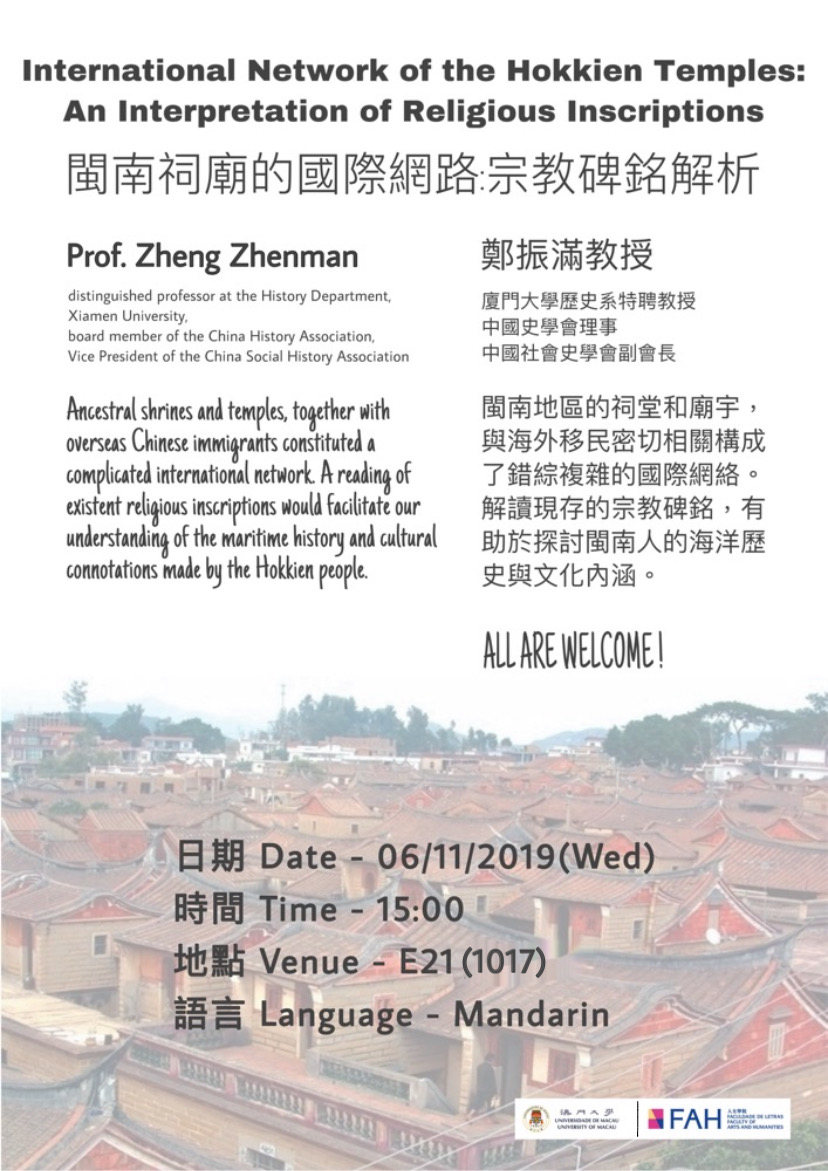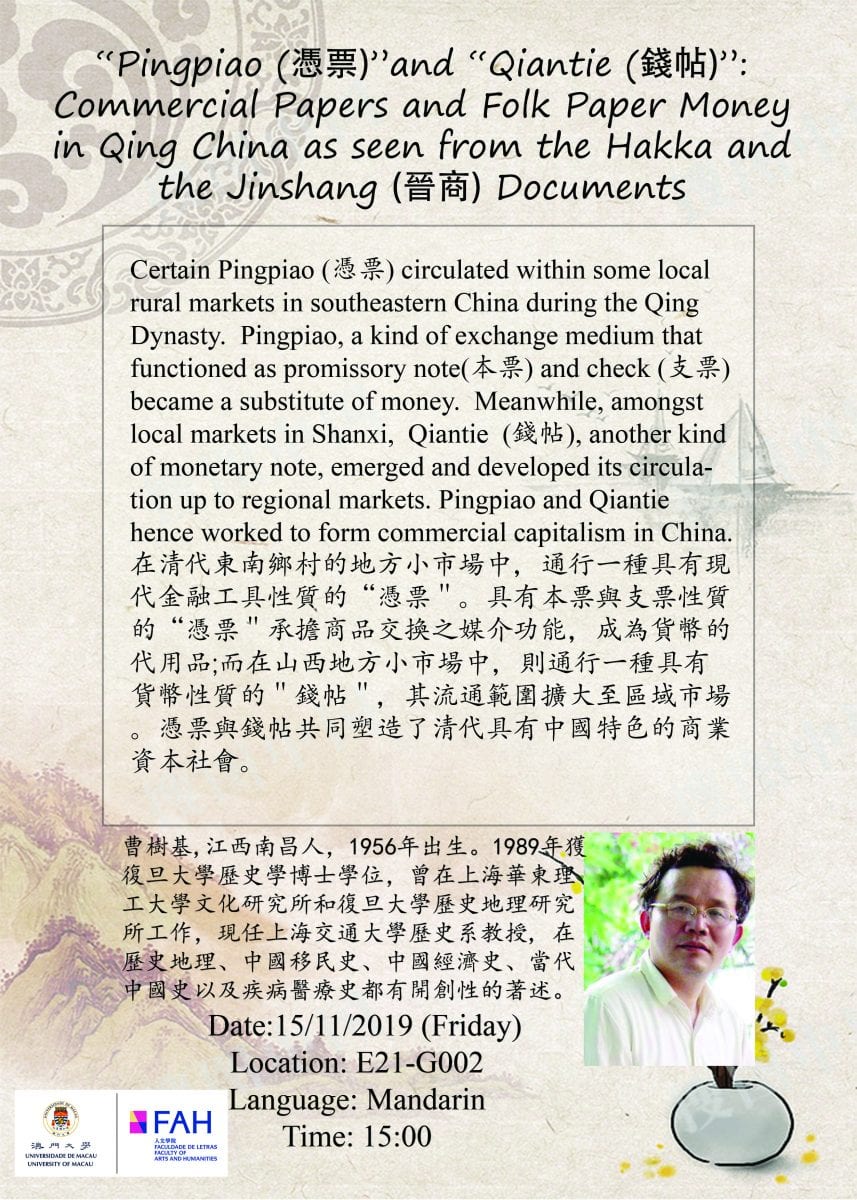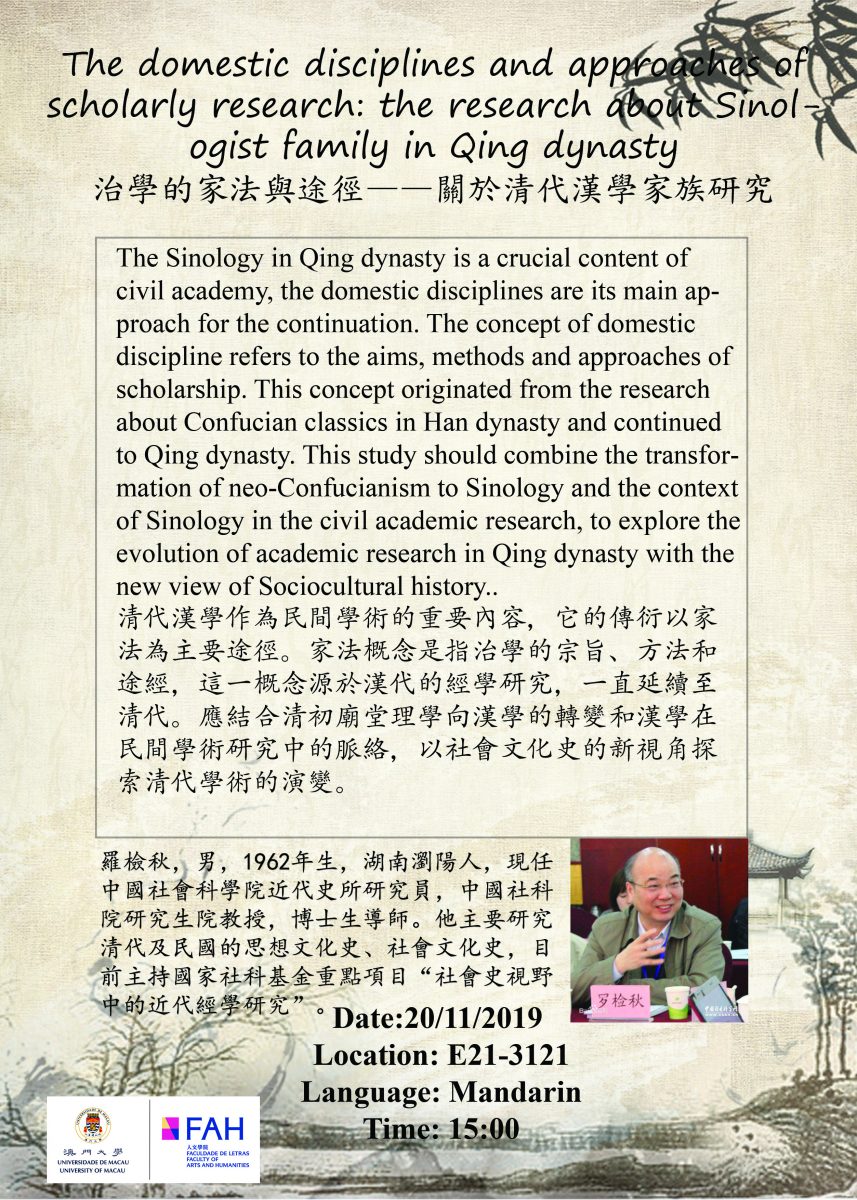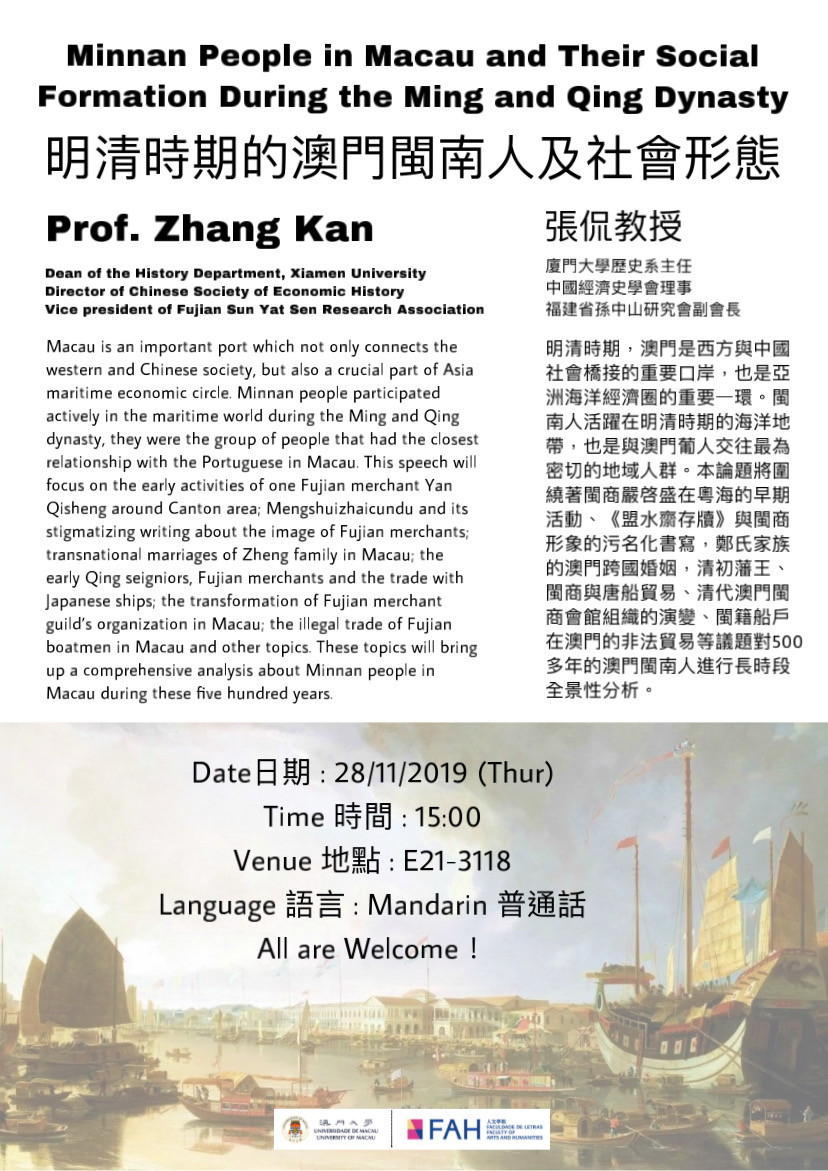Calendar of Events
M Mon
T Tue
W Wed
T Thu
F Fri
S Sat
S Sun
0 events,
0 events,
0 events,
0 events,
0 events,
0 events,
0 events,
0 events,
0 events,
1 event,
FAH-DHIST Guest Lecture – ‘International Network of the Hokkien Temples: An Interpretation of Religious Inscriptions ’
FAH-DHIST Guest Lecture – ‘International Network of the Hokkien Temples: An Interpretation of Religious Inscriptions ’
‘International Network of the Hokkien Temples: An Interpretation of Religious Inscriptions ’ Abstract: Ancestral shrines and temples, together with overseas Chinese immigrants constituted a complicated international network. A reading of existent religious inscriptions would facilitate our understanding of the maritime history and cultural connotations made by the Hokkien people.
0 events,
0 events,
0 events,
0 events,
0 events,
0 events,
0 events,
0 events,
1 event,
FAH-DHIST Guest Lecture – “Pingpiao 憑票”and “Qiantie 錢帖”: Commercial Papers and Folk Paper Money in Qing China as seen from the Hakka and the Jinshang (晉商) Documents
FAH-DHIST Guest Lecture – “Pingpiao 憑票”and “Qiantie 錢帖”: Commercial Papers and Folk Paper Money in Qing China as seen from the Hakka and the Jinshang (晉商) Documents
“Pingpiao 憑票”and “Qiantie 錢帖”: Commercial Papers and Folk Paper Money in Qing China as seen from the Hakka and the Jinshang (晉商) Documents Certain Pingpiao (憑票) circulated within some local rural markets in southeastern China during the Qing Dynasty. Pingpiao, a kind of exchange medium that functioned as promissory note(本 票) and check (支票) became a substitute of money. Meanwhile, amongst local markets in Shanxi, Qiantie (錢帖), another kind of monetary note, emerged and developed its circulation up to regional markets. Pingpiao and Qiantie hence worked to form commercial-capitalism in China. 憑票與錢帖:清代中國的商業票據與民間紙幣——以客家文書與晉商文書為例 在清代東南鄉村的地方小市場中,通行一種具有現代金融工具性質的“憑票"。具有本票與支票性質的“憑票"承擔商品交換之媒介功能,成為貨幣的代用品;而在山西地方小市場中,則通行一種具有貨幣性質的"錢帖",其流通範圍擴大至區域市場。憑票與錢帖共同塑造了清代具有中國特色的商業資本社會。
0 events,
0 events,
0 events,
0 events,
1 event,
FAH-DHIST Guest Lecture – “The Domestic Disciplines and Approaches of Scholarly Research: the Research about Sinologist Family in Qing Dynasty 治學的家法與途徑——關於清代漢學家族研究”
FAH-DHIST Guest Lecture – “The Domestic Disciplines and Approaches of Scholarly Research: the Research about Sinologist Family in Qing Dynasty 治學的家法與途徑——關於清代漢學家族研究”
The domestic disciplines and approaches of scholarly research: the research about Sinologist family in Qing dynasty The Sinology in Qing dynasty is a crucial content of civil academy, the domestic disciplines are its main approach for the continuation. The concept of domestic discipline refers to the aims, methods and approaches of scholarship. This concept originated from the research about Confucian classics in Han dynasty and continued to Qing dynasty. This study should combine the transformation of neo-Confucianism to Sinology and the context of Sinology in the civil academic research, to explore the evolution of academic research in Qing dynasty with the new view of Sociocultural history. 治學的家法與途徑——關於清代漢學家族研究 清代漢學作為民間學術的重要內容,它的傳衍以家法為主要途徑。家法概念是指治學的宗旨、方法和途經,這一概念源於漢代的經學研究,一直延續至清代。應結合清初廟堂理學向漢學的轉變和漢學在民間學術研究中的脈絡,以社會文化史的新視角探索清代學術的演變。
0 events,
0 events,
0 events,
0 events,
0 events,
0 events,
0 events,
1 event,
FAH-DHIST Guest Lecture – ‘Minnan People in Macau and Their Social Formation During the Ming and Qing Dynasty 明清時期的澳門閩南人及社會形態’
FAH-DHIST Guest Lecture – ‘Minnan People in Macau and Their Social Formation During the Ming and Qing Dynasty 明清時期的澳門閩南人及社會形態’
Minnan People in Macau and Their Social Formation During the Ming and Qing Dynasty Abstract: Macau is an important port which not only connects the western and Chinese society, but also a crucial part of Asia maritime economic circle. Minnan people participated actively in the maritime world during the Ming and Qing dynasty, they were the group of people that had the closest relationship with the Portuguese in Macau. This speech will focus on the early activities of one Fujian merchant Yan Qisheng around Canton area; Mengshuizhaicundu and its stigmatizing writing about the image of Fujian merchants; transnational marriages of Zheng family in Macau; the early Qing seigniors, Fujian merchants and the trade with Japanese ships; the transformation of Fujian merchant guild’s […]





